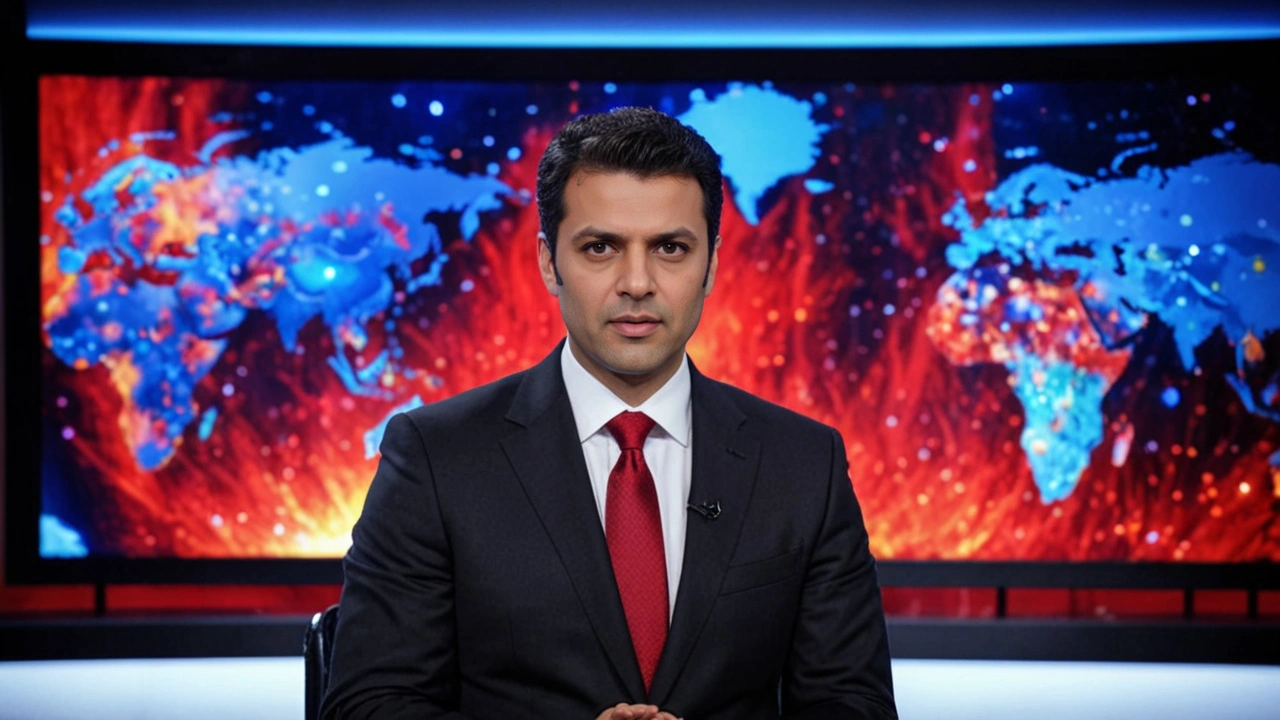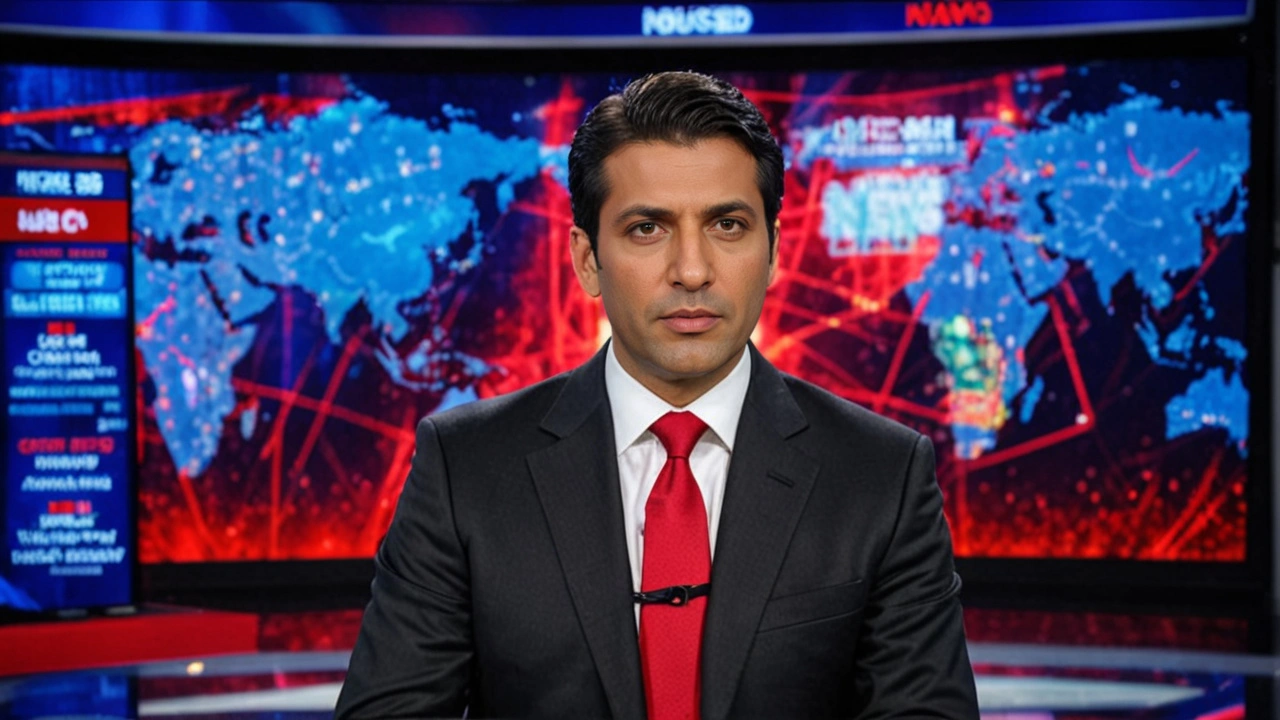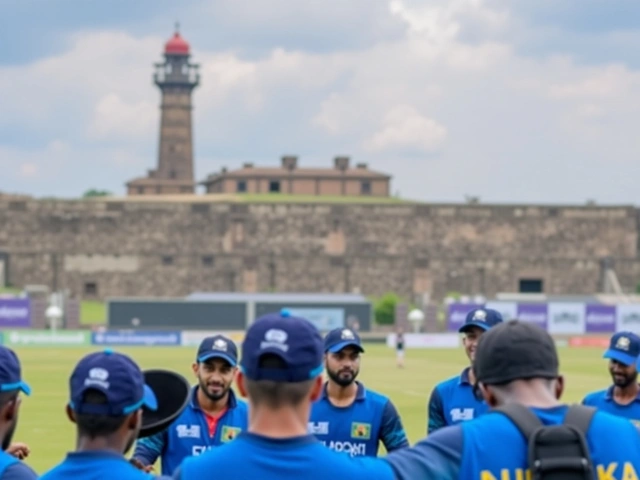The Unlawful Killing of Journalist Arshad Sharif
In a pivotal moment for justice and press freedom, a Kenyan court has ruled that the killing of Pakistani journalist Arshad Sharif in 2022 was starkly unlawful. Sharif, who was known for his support of former Pakistani Prime Minister Imran Khan, met a tragic fate in October 2022 when he was fatally shot in the head by Kenyan police. The incident sent shockwaves across the globe, raising questions about police conduct and the protection of journalists.
Sharif had fled his home country in August 2022, seeking refuge from sedition charges levied against him. The Pakistani government accused him of inciting public unrest through his outspoken journalism. Despite seeking safety abroad, Sharif's journey tragically ended in Kenya, drawing international attention and sparking a fierce demand for justice.

The Court's Findings and Ruling
High Court Judge Stella Mutuku delivered the monumental ruling, stating that the actions of the police were not only unconstitutional but also a gross violation of Sharif's rights to life and protection. Her judgment emphatically criticized the law enforcement officers involved, marking a significant step towards holding them accountable for their actions. The court's decision underscored the importance of safeguarding journalists, who are often at the forefront of exposing corruption and advocating for truth.
In addition to declaring the killing unconstitutional, the court awarded 10 million Kenyan shillings (approximately Rs21.7 million) in compensation to Sharif's widow, Javeria Siddique. This compensation serves as both a tangible acknowledgment of the loss suffered and a powerful statement against impunity.
Legal Actions and Accountability
The court's directive to the Office of the Director of Public Prosecutions and the Independent Policing Oversight Authority to conclude their investigations and prosecute the two police officers involved further emphasizes the gravity of the situation. This ruling is seen as a beacon of hope for those demanding justice and accountability within the ranks of law enforcement.
Siddique's lawyer, Ochiel Dudley, hailed the ruling as a 'great precedent for police accountability.' The legal community and human rights activists alike are hopeful that this case could pave the way for more rigorous scrutiny of police actions, not just in Kenya but internationally. Sharif's widow, Javeria Siddique, expressed profound gratitude for the court's decision, highlighting the critical message it sends — that journalists cannot be killed with impunity.

Impact on Journalistic Freedom and Safety
Journalists around the world often face considerable risks due to their work. From exposing governmental misconduct to holding powerful entities accountable, their roles are vital in maintaining an informed and transparent society. Sharif's killing is a stark reminder of the dangers journalists encounter. This court ruling shines a light on the dire need for enhanced protection measures and rigorous legal frameworks to safeguard journalists.
The chilling effect of such violent acts against journalists is profound. It discourages reporters from pursuing hard-hitting stories, ultimately hindering the flow of information. This case drives home the importance of not just protecting journalists but also ensuring swift justice when they face such perilous situations.
Global Reactions and Significance
The global journalism community has closely followed Sharif's case. Various international organizations that champion press freedom have lauded the Kenyan court's ruling as a courageous stand against violence targeted at journalists. The decision is expected to resonate worldwide, inspiring other nations to bolster their legal protections for journalists.
This ruling is more than just a victory for Sharif's family; it sets a powerful precedent. It sends a clear message that the judicial system can and should hold perpetrators accountable, no matter their position or status. For countries grappling with their own issues of press freedom and police accountability, this case serves as an influential example of justice in action.

Moving Forward: The Path to Justice
While the court's ruling marks a significant step, the journey towards comprehensive justice for Arshad Sharif and his family is far from over. The ordered investigations and subsequent prosecutions of the involved officers are crucial to achieving closure and setting a lasting precedent. It is imperative that these processes are conducted transparently and expeditiously to prevent any lingering doubts about accountability.
Moreover, the ruling underscores the need for continuous advocacy and reform in protecting journalists worldwide. Legal frameworks must be revisited and strengthened to ensure that journalists can carry out their work without fear of retribution or violence. The international community, including media organizations, human rights groups, and governments, must collaborate to create a safer environment for press freedom to flourish.
The Role of Society and Institutions
Institutions and society at large play a pivotal role in upholding the principles of justice and press freedom. Education and awareness about the importance of an independent and protected press can build a robust support system for journalists. Societal recognition of the risks faced by journalists and collective condemnation of violence against them can foster a culture of accountability and respect for press freedom.
In conclusion, the Kenyan court's ruling on the unlawful killing of Arshad Sharif is a landmark moment in the fight for justice and press freedom. It is a reminder of the critical role that journalists play in society and the need to protect them vehemently. As investigations continue and the involved officers face prosecution, this case will undoubtedly remain a crucial reference point in the ongoing global discourse on police accountability and the protection of journalists.






9 Comments
Prince Chukwu
July 10, 2024 AT 18:56 PMBro this is wild. A journalist gets shot in Kenya and the court actually says NOPE. I mean, when was the last time that happened? This is the kind of justice that gives me hope. Not just for Arshad but for every reporter out there trying to tell the truth while wearing a target on their back. Kenya just dropped a whole new level of courage.
Divya Johari
July 11, 2024 AT 21:16 PMThe ruling is legally sound and morally unimpeachable. One must acknowledge the judicial independence demonstrated by the Kenyan High Court. The compensation awarded is not merely monetary but symbolic of the state’s recognition of its constitutional obligations. This is jurisprudence at its finest.
Aniket sharma
July 11, 2024 AT 22:43 PMThis is why we need more courts like this. Not just in Kenya but everywhere. Journalists aren’t enemies. They’re the ones holding up the mirror. If we let them get silenced, who’s left to hold power accountable? We all lose when truth gets killed.
Unnati Chaudhary
July 12, 2024 AT 16:13 PMI just cried reading this. Not because it’s sad - though it is - but because for once, someone actually got held accountable. It’s rare. Like finding a working printer in an office. Arshad’s wife must feel like the world finally saw him as more than a headline. That’s everything.
Sreeanta Chakraborty
July 14, 2024 AT 02:56 AMLet’s be real. This was a staged event. The Kenyan police didn’t just ‘shoot’ him. Someone else pulled the trigger and framed them. Why? To distract from the real story - Pakistan’s internal collapse. The timing? Too perfect. And the payout? A distraction tactic to make the West look away from the real rot.
Vijendra Tripathi
July 14, 2024 AT 13:21 PMThis is huge. Honestly. I’ve seen so many cases where journalists vanish or get blamed for their own deaths. But here? The court didn’t just say ‘oops’ - they said ‘you messed up’ and made them pay. That’s the kind of thing that changes how cops think before they pull a trigger. Keep pushing, Kenya.
ankit singh
July 15, 2024 AT 21:42 PMThe compensation is good but the real win is the precedent. Now every cop in Africa knows if they kill a journalist they might actually go to jail. That’s the power of law. This case should be taught in every journalism school and police academy. Simple. Clear. Necessary.
Pratiksha Das
July 16, 2024 AT 08:57 AMWait so the wife got 10 million ksh but what about the kids?? Did they get anything?? Also why did he even go to kenya?? Was he hiding from something else?? I feel like there’s more to this story
ajay vishwakarma
July 17, 2024 AT 08:02 AMThis is exactly what happens when institutions still have integrity. The court didn’t bow to pressure. Didn’t ignore the facts. Did its job. And that’s why this ruling matters - not just for Arshad, but for every future journalist who needs to know: truth has a chance.